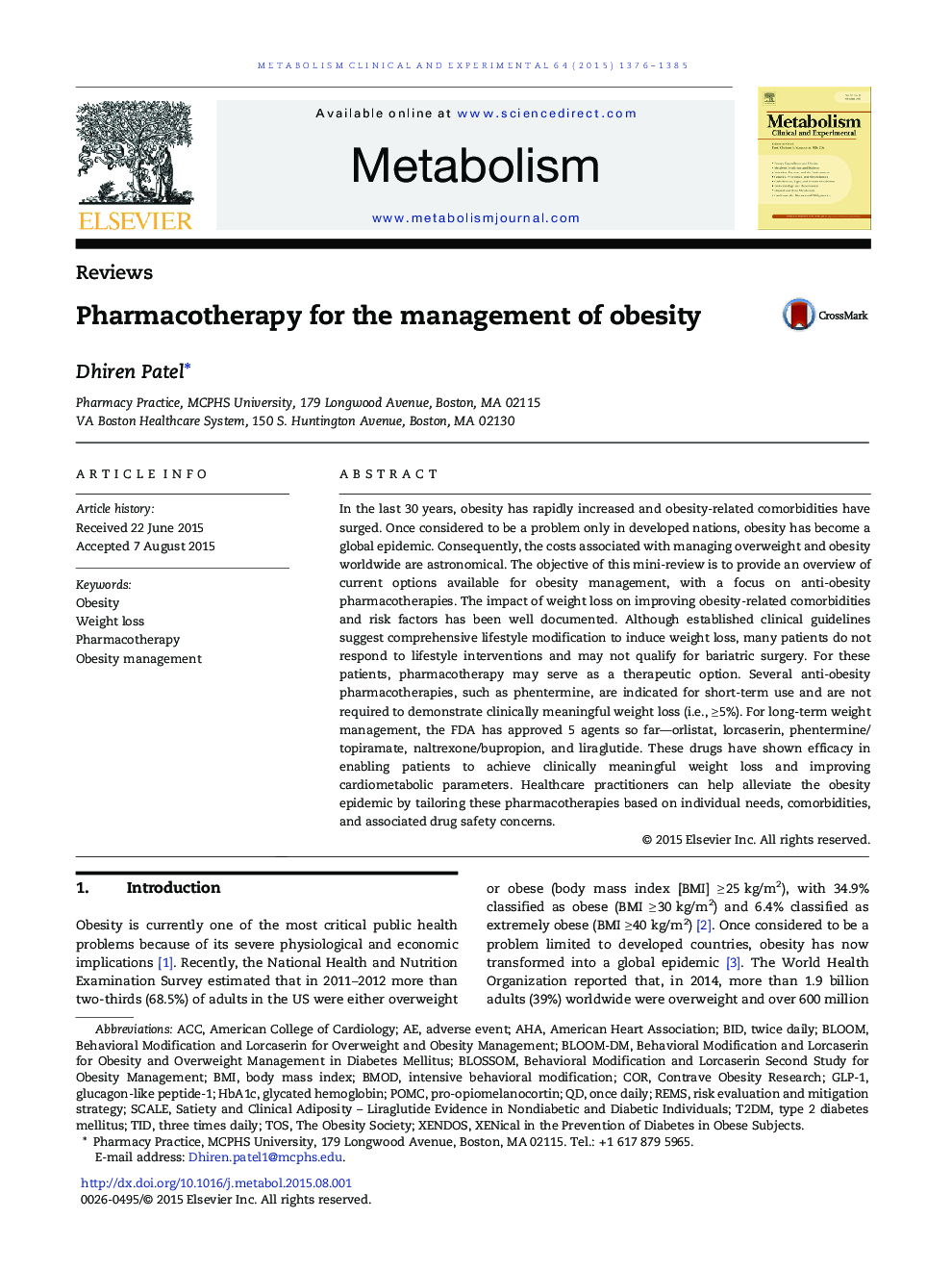| کد مقاله | کد نشریه | سال انتشار | مقاله انگلیسی | نسخه تمام متن |
|---|---|---|---|---|
| 2805362 | 1157045 | 2015 | 10 صفحه PDF | دانلود رایگان |
In the last 30 years, obesity has rapidly increased and obesity-related comorbidities have surged. Once considered to be a problem only in developed nations, obesity has become a global epidemic. Consequently, the costs associated with managing overweight and obesity worldwide are astronomical. The objective of this mini-review is to provide an overview of current options available for obesity management, with a focus on anti-obesity pharmacotherapies. The impact of weight loss on improving obesity-related comorbidities and risk factors has been well documented. Although established clinical guidelines suggest comprehensive lifestyle modification to induce weight loss, many patients do not respond to lifestyle interventions and may not qualify for bariatric surgery. For these patients, pharmacotherapy may serve as a therapeutic option. Several anti-obesity pharmacotherapies, such as phentermine, are indicated for short-term use and are not required to demonstrate clinically meaningful weight loss (i.e., ≥ 5%). For long-term weight management, the FDA has approved 5 agents so far—orlistat, lorcaserin, phentermine/topiramate, naltrexone/bupropion, and liraglutide. These drugs have shown efficacy in enabling patients to achieve clinically meaningful weight loss and improving cardiometabolic parameters. Healthcare practitioners can help alleviate the obesity epidemic by tailoring these pharmacotherapies based on individual needs, comorbidities, and associated drug safety concerns.
Journal: Metabolism - Volume 64, Issue 11, November 2015, Pages 1376–1385
